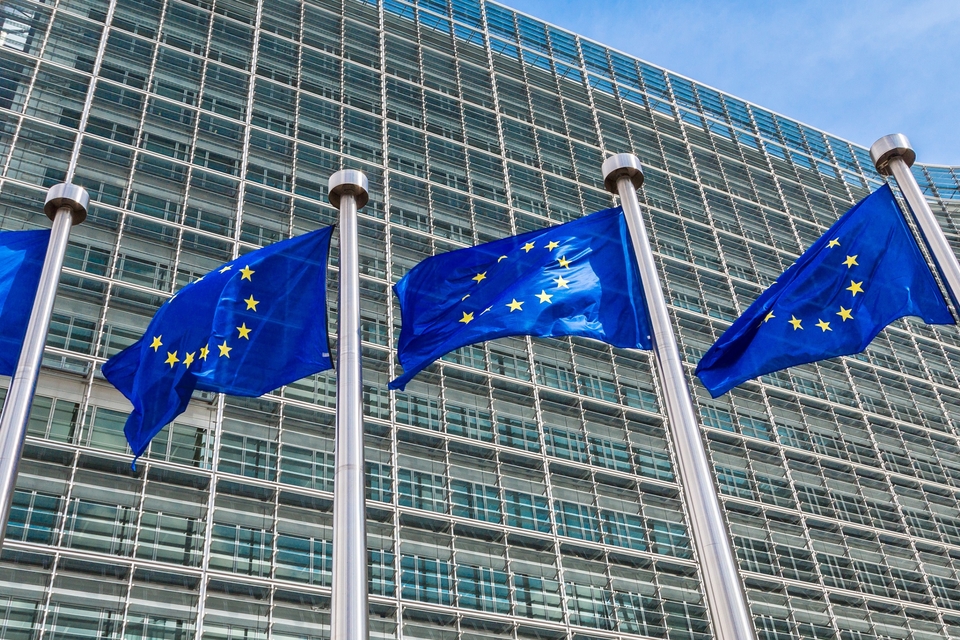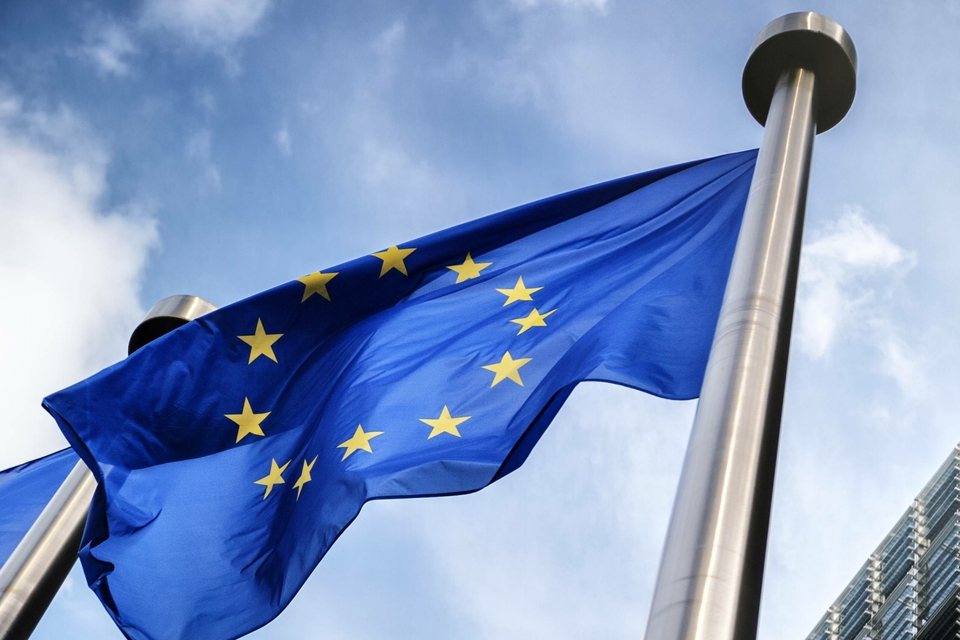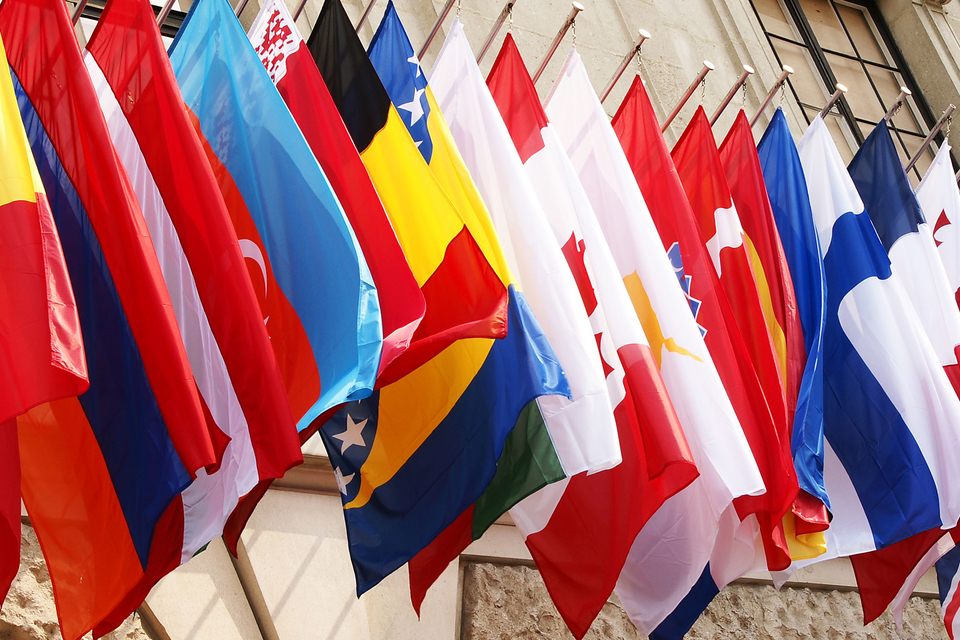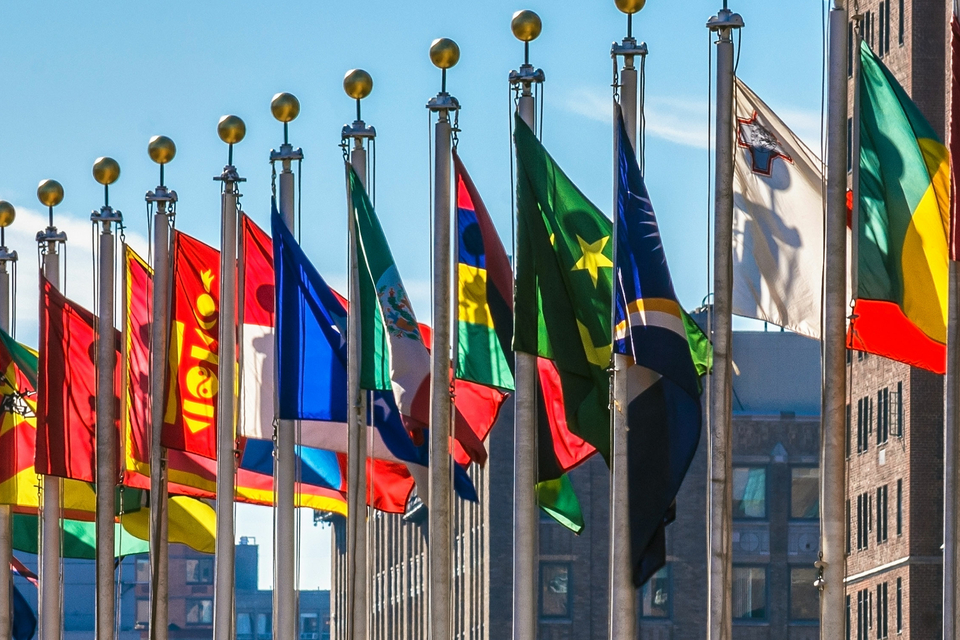African Union
The African Union's Continental AI Strategy sets the stage for a unified approach to AI governance across the continent.

Artificial intelligence (AI) has made enormous strides in recent years and has increasingly moved into the public consciousness.
Subscribe
We encourage you to subscribe to receive AI-related updates.
Explore Trendscape Our take on the interconnected global trends that are shaping the business climate for our clients.
Increases in computational power, coupled with advances in machine learning, have fueled the rapid rise of AI. This has brought enormous opportunities, as new AI applications have given rise to new ways of doing business. It has also brought potential risks, from unintended impacts on individuals (e.g., AI errors harming an individual's credit score or public reputation) to the risk of misuse of AI by malicious third parties (e.g., by manipulating AI systems to produce inaccurate or misleading output, or by using AI to create deepfakes).
Governments and regulatory bodies around the world have had to act quickly to try to ensure that their regulatory frameworks do not become obsolete. In addition, international organizations such as the G7, the UN, the Council of Europe and the OECD have responded to this technological shift by issuing their own AI frameworks. But they are all scrambling to stay abreast of technological developments, and already there are signs that emerging efforts to regulate AI will struggle to keep pace. In an effort to introduce some degree of international consensus, the UK government organized the first global AI Safety Summit in November 2023, with the aim of encouraging the safe and responsible development of AI around the world. The EU is also implementing the first comprehensive horizontal legal framework for the regulation of AI systems across EU Member States (the EU AI Act is addressed in more detail here: AI watch: Global regulatory tracker - European Union, and you can read our EU AI Act Handbook here).
Most jurisdictions have sought to strike a balance between encouraging AI innovation and investment, while at the same time attempting to create rules to protect against possible harms. However, jurisdictions around the world have taken substantially different approaches to achieving these goals, which has in turn increased the risk that businesses face from a fragmented and inconsistent AI regulatory environment. Nevertheless, certain trends are becoming clearer at this stage:
Businesses in almost all sectors need to keep a close eye on these developments to ensure that they are aware of the AI regulations and forthcoming trends, in order to identify new opportunities and new potential business risks. But even at this early stage, the inconsistent approaches each jurisdiction has taken to the core questions of how to regulate AI is clear. As a result, it appears that international businesses may face substantially different AI regulatory compliance challenges in different parts of the world. To that end, this AI Tracker is designed to provide businesses with an understanding of the state of play of AI regulations in the core markets in which they operate. It provides analysis of the approach that each jurisdiction has taken to AI regulation and provides helpful commentary on the likely direction of travel.
Because global AI regulations remain in a constant state of flux, this AI Tracker will develop over time, adding updates and new jurisdictions when appropriate. Stay tuned, as we continue to provide insights to help businesses navigate these ever-evolving issues.
The African Union's Continental AI Strategy sets the stage for a unified approach to AI governance across the continent.

Voluntary AI Ethics Principles guide responsible AI development in Australia, with potential reforms under consideration.

The enactment of Brazil's proposed AI Regulation remains uncertain with compliance requirements pending review.

AIDA expected to regulate AI at the federal level in Canada but provincial legislatures have yet to be introduced.

The Interim AI Measures is China's first specific, administrative regulation on the management of generative AI services.

Despite congressional activity on AI in Colombia, regulation remains unclear and uncertain.

The Council of Europe is developing a new Convention on AI to safeguard human rights, democracy, and the rule of law in the digital space covering governance, accountability and risk assessment.

The successful implementation of the EU AI Act into national law is the primary focus for the Czech Republic, with its National AI Strategy being the main policy document.

The EU introduces the pioneering EU AI Act, aiming to become a global hub for human-centric, trustworthy AI.

France actively participates in international efforts and proposes sector-specific laws.

The G7's AI regulations mandate Member States' compliance with international human rights law and relevant international frameworks.

Germany evaluates AI-specific legislation needs and actively engages in international initiatives.

Hong Kong lacks comprehensive AI legislative framework but is developing sector-specific guidelines and regulations, and investing in AI.

National frameworks inform India’s approach to AI regulation, with sector-specific initiatives in finance and health sectors.

Israel promotes responsible AI innovation through policy and sector-specific guidelines to address core issues and ethical principles.


Japan adopts a soft law approach to AI governance but lawmakers advance proposal for a hard law approach for certain harms.

Kenya's National AI Strategy and Code of Practice expected to set foundation of AI regulation once finalized.

Nigeria's draft National AI Policy underway and will pave the way for a comprehensive national AI strategy.

Position paper informs Norwegian approach to AI, with sector-specific legislative amendments to regulate developments in AI.

The OECD's AI recommendations encourage Member States to uphold principles of trustworthy AI.

Saudi Arabia is yet to enact AI Regulations, relying on guidelines to establish practice standards and general principles.

Singapore's AI frameworks guide AI ethical and governance principles, with existing sector-specific regulations addressing AI risks.

South Africa is yet to announce any AI regulation proposals but is in the process of obtaining inputs for a draft National AI plan.

South Korea's AI Act has been promulgated as the fundamental body of law governing AI.

Spain creates Europe's first AI supervisory agency and actively participates in EU AI Act negotiations.

Switzerland's National AI Strategy sets out guidelines for the use of AI, and aims to finalize an AI regulatory proposal in 2025.

Draft laws and guidelines are under consideration in Taiwan, with sector-specific initiatives already in place.

Turkey has published multiple guidelines on the use of AI in various sectors, with a bill for AI regulation now in the legislative process.

Mainland UAE has published an array of decrees and guidelines regarding regulation of AI, while the ADGM and DIFC free zones each rely on amendments to existing data protection laws to regulate AI.

The UK prioritizes a flexible framework over comprehensive regulation and emphasizes sector-specific laws.

The UN's AI resolutions encourage Member States to adopt national rules to establish safe, secure and trustworthy AI systems and create forums to advance global cooperation, scientific understanding, and share best practices.

The US relies on existing federal laws and guidelines to regulate AI but aims to introduce AI legislation and a federal regulation authority.


Saudi Arabia is yet to enact AI Regulations, relying on guidelines to establish practice standards and general principles.
There are currently no AI Regulations that have the force of law in the Kingdom of Saudi Arabia (the "Kingdom"). That said, the Saudi Data and Artificial Intelligence Authority of Saudi Arabia (SDAIA) have issued draft AI Ethics Principles dated September 2023 (the "AI Principles").1 The Council of Ministers' Resolution No. (292) mandates SDAIA to develop policies, governance mechanisms, standards, and controls related to data and artificial intelligence and monitor compliance therewith upon issuance. SDAIA has analyzed global practices and standards to develop these AI Principles which aim to:
Additionally, SDAIA has also issued two Generative AI Guidelines (the "Guidelines"), both dated January 1, 2024. The first version is directed toward government employees (the "Government Guidelines").3 The second version is for the public (the "Public Guidelines").4 Both versions provide guidelines regarding adoption and use of generative artificial intelligence (GenAI) systems, along with examples based on common scenarios. They also highlight the challenges and considerations associated with the use of GenAI, propose principles for responsible use, and present recommended practices. These Guidelines also do not have the force of law but serve as guidance.
As noted above, the AI Principles remain in draft, and there are currently no specific laws or regulations in the Kingdom that directly regulate AI.
There are several other areas of law that affect the development or use of AI, including the Personal Data Protection Law5, intellectual property laws, and other laws that may affect the use of AI in specific sectors or contexts.
SDAIA defines "AI" as: systems that employ methods that can gather data and use it to predict, suggest, or make decisions with varying degrees of autonomy and select the best course of action to accomplish particular objectives.6
As noted above, there are currently no specific laws or regulations in the Kingdom that directly regulate AI. The AI Principles are currently in draft form and therefore do not have the force of law in the Kingdom. That said, when the draft AI Principles do get issued, they shall apply to all AI stakeholders designing, developing, deploying, implementing, using, or being affected by AI systems within the Kingdom, including but not limited to public entities, private entities, non-profit entities, researchers, public services, institutions, civil society organizations, individuals, workers, and consumers.7
The Guidelines apply to (i) the public, including developers and users of GenAI, in the Kingdom8; and (ii) promote the responsible and effective utilization of GenAI tools and services in government transactions.9 The Guidelines As noted above, there are currently no specific laws or regulations in the Kingdom that directly regulate AI. The AI Principles are currently in draft form and therefore do not have the force of law in the Kingdom. That said, when the draft AI Principles do get issued, they shall apply to all AI stakeholders designing, developing, deploying, implementing, using, or being affected by AI systems within the Kingdom, including but not limited to public entities, private entities, non-profit entities, researchers, public services, institutions, civil society organizations, individuals, workers, and consumers.
The Guidelines apply to (i) the public, including developers and users of GenAI, in the Kingdom ; and (ii) promote the responsible and effective utilization of GenAI tools and services in government transactions.9 The Guidelines emphasize the proper use and processing of government data in adherence to relevant laws and regulations in the Kingdom.
As noted above, there are currently no specific laws or regulations in the Kingdom that regulate AI. Accordingly, there is no specific sectoral scope at this stage.
As noted above, there are currently no specific laws or regulations in the Kingdom that regulate AI. The AI Principles and the Guidelines do not have the force of law, so compliance is not mandatory. The AI Principles are still in draft form and the Guidelines specifically provide that they are for guidance purposes and are not obligatory.
That said, pursuant to the Royal Order establishing SDAIA, SDAIA does have the overarching power to monitor and create regulations regarding AI, which does include the right to monitor compliance of AI Regulations if issued in the future.
Based on the draft AI Principles, the core issues are as follows:
The Guidelines provide no category of risk, but provide the following categories of risk mitigation measures:11
Deepfakes and Misrepresentation – This includes mitigation measures such as:
Safety Threats – This includes mitigation measures such as:
Misinformation and Hallucination – This includes mitigation measures such as:
Classified Data Breaches – This includes mitigation measures such as:
Certification Fraud – This includes mitigation measures such as:
Intellectual Property Infringement and Protection – This includes mitigation measures such as:
Variability of Outputs – This includes mitigation measures such as:
As noted above, there are currently no specific laws or regulations in the Kingdom that directly regulate AI. The relevant aspects of the AI Principles and the Guidelines are set out above.
The key regulator is SDAIA. SDAIA is the competent authority in the Kingdom concerned with data and AI, including big data. SDAIA is also the national reference in all matters related to the organization, development, and handling of data and AI; in addition, it has the original competence in all matters related to operation, research, and innovation in the field of data and AI. SDAIA was established by Royal Order No. (A/471) and is headquartered in Riyadh. SDAIA is directly linked to the Prime Minister; its sub-entities are the National Data Management Office (NDMO), National Center for AI (NCAI), and National Information Center (NIC), all of which are organizationally linked.
As noted above, there are currently no specific laws or regulations in the Kingdom that directly regulate AI. As such, enforcement and penalties relating to the creation, dissemination and/or use of AI are governed by the Royal Order establishing SDAIA, which does grant SDAIA the overarching power to monitor and regulate AI in the Kingdom.
1 See here
2 See here, p.5
3 See here
4 See here
5 See here
6 See here
7 See here, p.9
8 See here, p.5
9 See here, p.5
10 See here
11 See here, section 5 "Generative AI Risks & Mitigations"
White & Case means the international legal practice comprising White & Case LLP, a New York State registered limited liability partnership, White & Case LLP, a limited liability partnership incorporated under English law and all other affiliated partnerships, companies and entities.
This article is prepared for the general information of interested persons. It is not, and does not attempt to be, comprehensive in nature. Due to the general nature of its content, it should not be regarded as legal advice.
© 2024 White & Case LLP
Ghazi Kayal (Associate, White & Case, Riyadh) and Jeffrey Shin (Associate, White & Case, London) contributed to this publication.